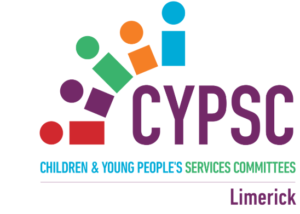Background to the Programme
This Programme was designed and delivered by staff from the Research Evidence into Policy, Programmes, and Practice (REPPP) project, which is a strategic research partnership between the Department of Children, Equality, Disability, Integration and Youth and the School of Law, University of Limerick. The programme in Dublin’s North East Inner City took place over three overnight blocks from Q3 2018-Q1 2019.
Tackling complex problems
This programme attracts people with responsibility for addressing complex problems. While the causes of such problems are structural and rooted in poverty, inequality and deprivation, they also involve difficulties or limitations with services or facilities, and feature people whose behaviour causes difficulties to themselves and others.
A deliberative space
This programme provides a safe, deliberative space in which to consider complex problems. The residential aspect is included to optimise this thinking space. It provides a break from the normal working environment. Initially participants collectively identify commonalities in relation to a given complex problem. They then form small task groups to select and fully examine the nature, characteristics and challenges of the problem in terms of how it began, its direct and indirect effects, and how it sustains itself. Complex problems require thorough understanding, which means that the process involves generating fresh questions and insights, and not rushing to come up with answers.
The NEIC Programme
In July 2016, the Government launched a major initiative for Dublin’s North East Inner City to oversee the long-term social and economic regeneration of the area. The North East Inner City Initiative arose from the Kieran Mulvey Report published in February 2017. The Report identifies four priority areas: a) tackling crime and drugs; b) maximising educational/training opportunities and creating local employment; c) creating an integrated system of social services; and d) improving the physical landscape in the area. The NEIC Initiative outlines the actions that should be taken by the Departments and Agencies to aid with the regeneration of the area.
The purpose of the NEIC Pilot Executive Leadership Programme was to provide participants with the space and possibly new tools to re-look at what may have been to date intractable problems in the North East Inner City. The problems in mind are those, which may be wicked by nature and are not amenable to simple solutions. These types of problems manifest themselves in the middle layer of policy, above the level of services to the individual and below the macro socio-economic, institutional level.
All the problem types in mind negatively affect citizens’ quality of life and impair aspirations for improvement. The approach to such problems in the executive leadership programme is pragmatic, acknowledging how things are (as-is) as a baseline. However, this is distinct from accepting the way things are, recognising that underlying structural factors such as poverty and inequality are at the root of these complex problems. What the programme offers is a potential to collaboratively take on big enough problems of community relevance.
The NEIC Programme brought together 22 people from the statutory and community and voluntary sectors working in this area. Following the conclusion of the programme, participants completed feedback forms, concluding that the programme was of a high quality and highly beneficial for participants.


